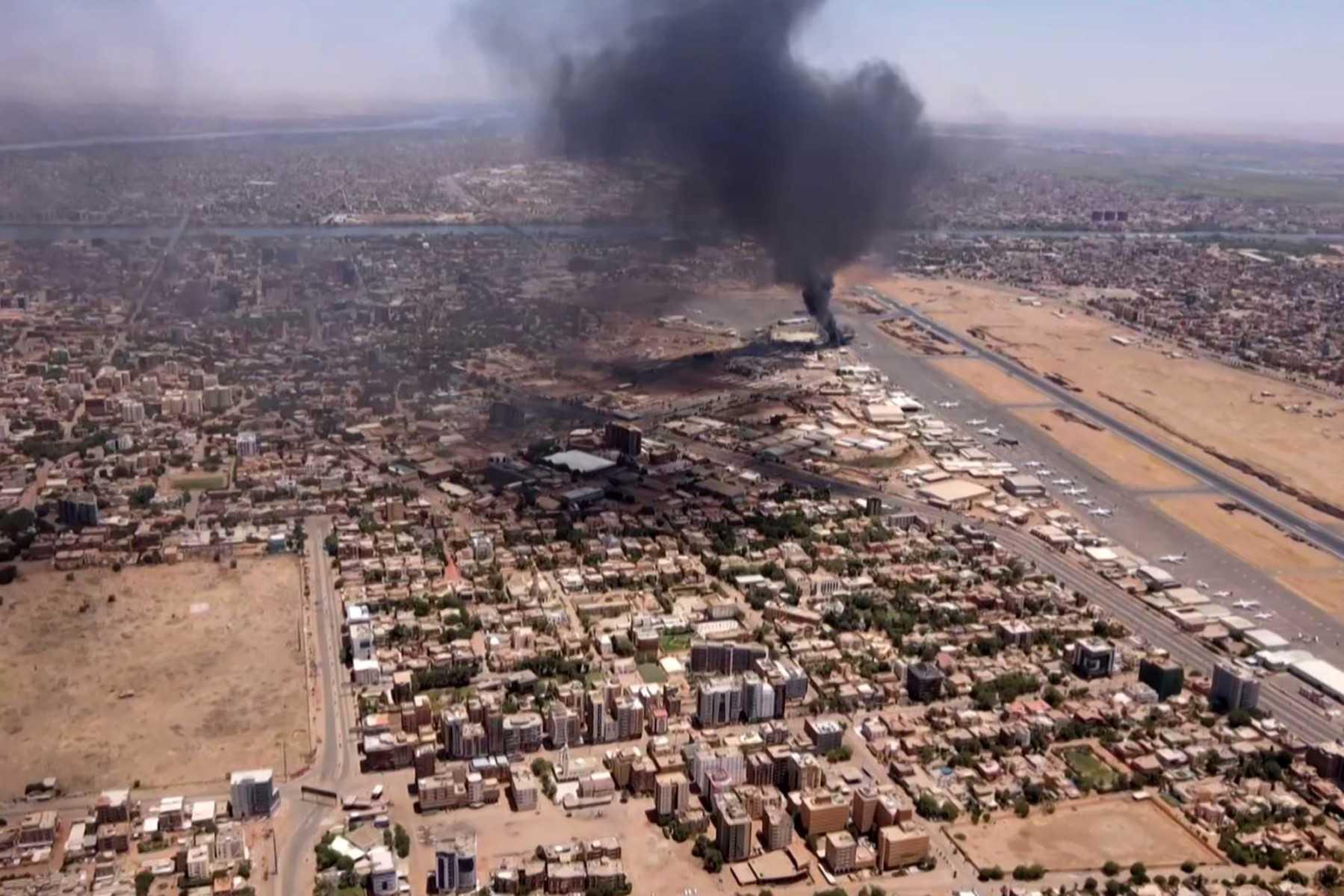Street battles in Sudan capital as Eid ceasefire calls ignored
Khartoum was rocked by explosions and clashes for the sixth straight night, even as the Eid al-Fitr celebrations marking the end of the holy Muslim month of fasting began.
Just In
The forces of two rival generals fought intense street battles in Sudan's capital on Friday, witnesses reported, as the parties in the week-long conflict ignored appeals for an end-of-Ramadan ceasefire.
More than 400 people have been killed and thousands wounded since the fighting erupted Saturday between forces loyal to Sudan's army chief Abdel Fattah al-Burhan and his deputy, Mohamed Hamdan Daglo, the commander of the powerful paramilitary Rapid Support Forces (RSF) who is commonly known as Hemeti.
Khartoum was rocked by explosions and clashes for the sixth straight night, medics said, even as the Eid al-Fitr celebrations marking the end of the holy Muslim month of fasting began.
Soldiers and paramilitaries fought fierce street battles later during the day in densely populated districts of the capital, with witnesses reporting bombs falling near the army's headquarters in the city of five million.
Both UN secretary-general Antonio Guterres and US Secretary of State Antony Blinken called separately for a ceasefire of "at least" three days to mark Eid.
The RSF, a powerful force formed from members of the Janjaweed militia that led years of extreme violence in the western Darfur region, said they would commit to a 72-hour ceasefire starting at dawn (0400 GMT).
But, like two previously declared 24-hour ceasefires, it failed to take hold, with the crackle of heavy gunfire heard in the streets and columns of black smoke drifting overhead.
The World Health Organization said 413 people had been killed and 3,551 wounded in the fighting so far across Sudan, in an update issued on Friday. The death toll is thought to be higher, however, with many wounded unable to reach hospitals.
'Nightmare scenario'
On Thursday, dozens of Burhan loyalists protested in Port Sudan against the presence of the ambassador of the United Arab Emirates, which has been accused of links to Daglo.
"No to the foreign interference in the country's affairs," read a banner they carried.
Analysts have warned of countries across the region being dragged into the conflict.
For the first time since hostilities began a week ago, Burhan appeared on television.
"For Eid this year, our country is bleeding: destruction, desolation and the sound of bullets have taken precedence over joy," he said in a pre-recorded video, which showed him sitting behind a desk in military uniform.
"We hope that we will come out of this ordeal more united... a single army, a single people... towards a civilian power."
The International Crisis Group (IGC) warned urgent steps were needed to stop a descent into "full-blown civil war", warning "the nightmare scenario that many feared in Sudan is unfolding."
The World Food Programme warned the violence could plunge millions more into hunger in a country where 15 million people – one-third of the population – need aid.
It has suspended its Sudan operations after the killing of three WFP workers on Saturday.
On Friday, the UN migration agency said one of its staff members had died after his vehicle "was caught in a crossfire".
Burhan and Daglo's bitter dispute centred on the planned integration of the RSF into the regular army, a key condition for a final deal aimed at restoring Sudan's democratic transition.
'They don't care'
Civilians are becoming increasingly desperate with thousands risking the dangerous streets to flee Khartoum, with many reporting streets strewn with corpses.
"This is a mere power struggle," said Abdul Wahid Othman, a 53-year-old in Khartoum. "They don't care about poor citizens who have been left without water, electricity... and water."
Plans were being made to evacuate foreign citizens, with the United States, South Korea and Japan deploying forces to nearby countries in preparation, and the European Union weighing a similar move.
Medics have warned of a catastrophe, with over two-thirds of hospitals in Khartoum and neighbouring states rendered "out of service" by the fighting, the doctors' union said.
Four hospitals in Obeid in North Kordofan state had also been "shelled".
In El Fasher in Darfur, some 800km southwest of Khartoum, Doctors Without Borders (MSF) said the situation was "catastrophic".
"There are so many patients that they are being treated on the floor," said MSF project coordinator Cyrus Paye, reporting ongoing gunfire in the city.
Burhan and Daglo toppled autocratic president Omar al-Bashir together in April 2019 following massive protests against his three decades of iron-fisted rule.
In October 2021, they again worked together in a coup to oust the civilian government installed after Bashir's downfall, derailing an internationally backed transition to democracy.
"With neither Burhan nor Hemeti appearing ready to back down, the situation could get much worse," the ICG think tank said, adding that while some analysts thought the army would succeed in on its "home turf" in Khartoum, the risk of an all-out conflict remained.
"Even if the army eventually does secure the capital, and Hemeti retreats to Darfur, a civil war could well follow, with potentially destabilising impact in neighbouring Chad, the Central African Republic, Libya and South Sudan", the ICG added.
Subscribe to our newsletter
To be updated with all the latest news and analyses daily.
